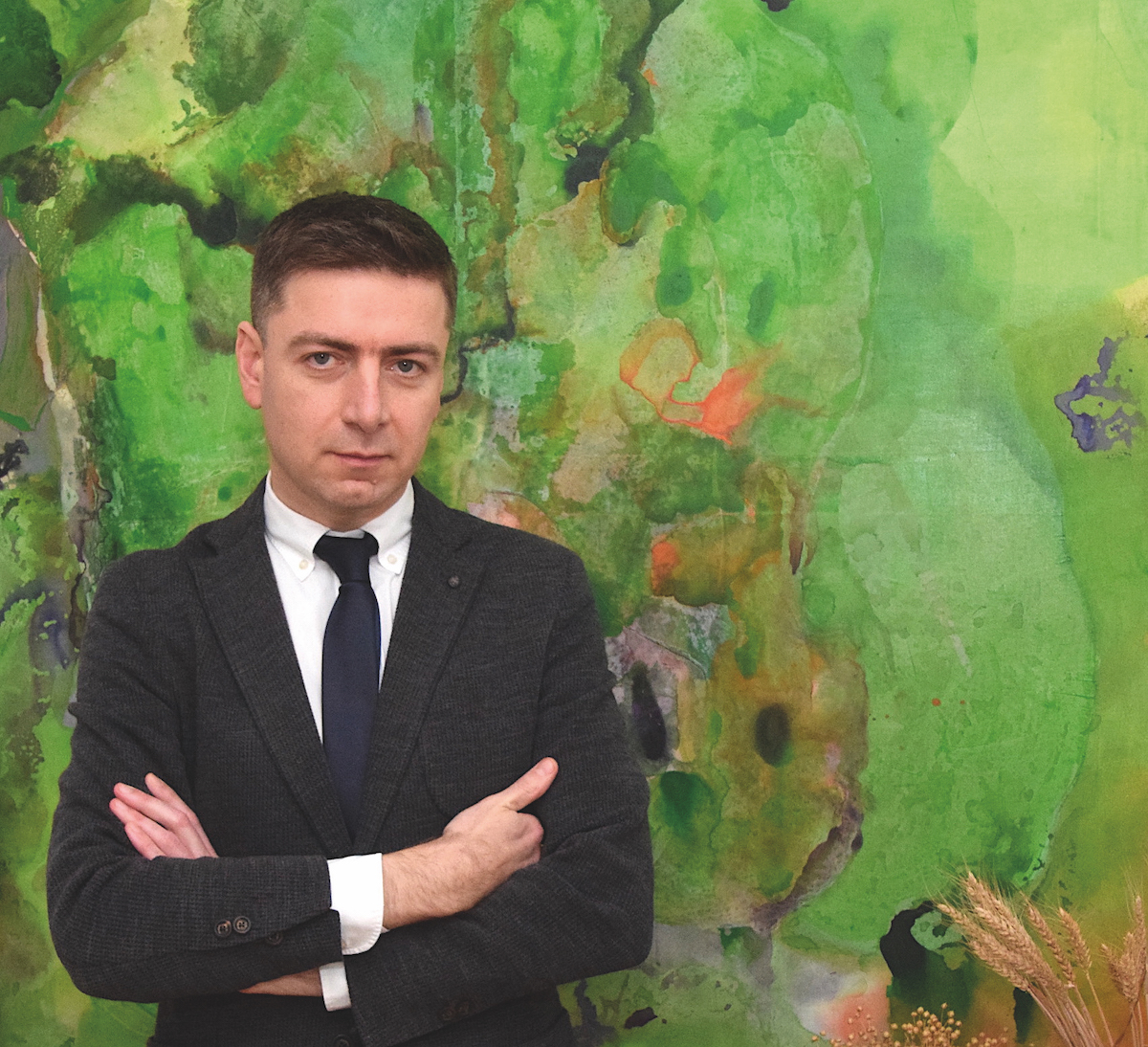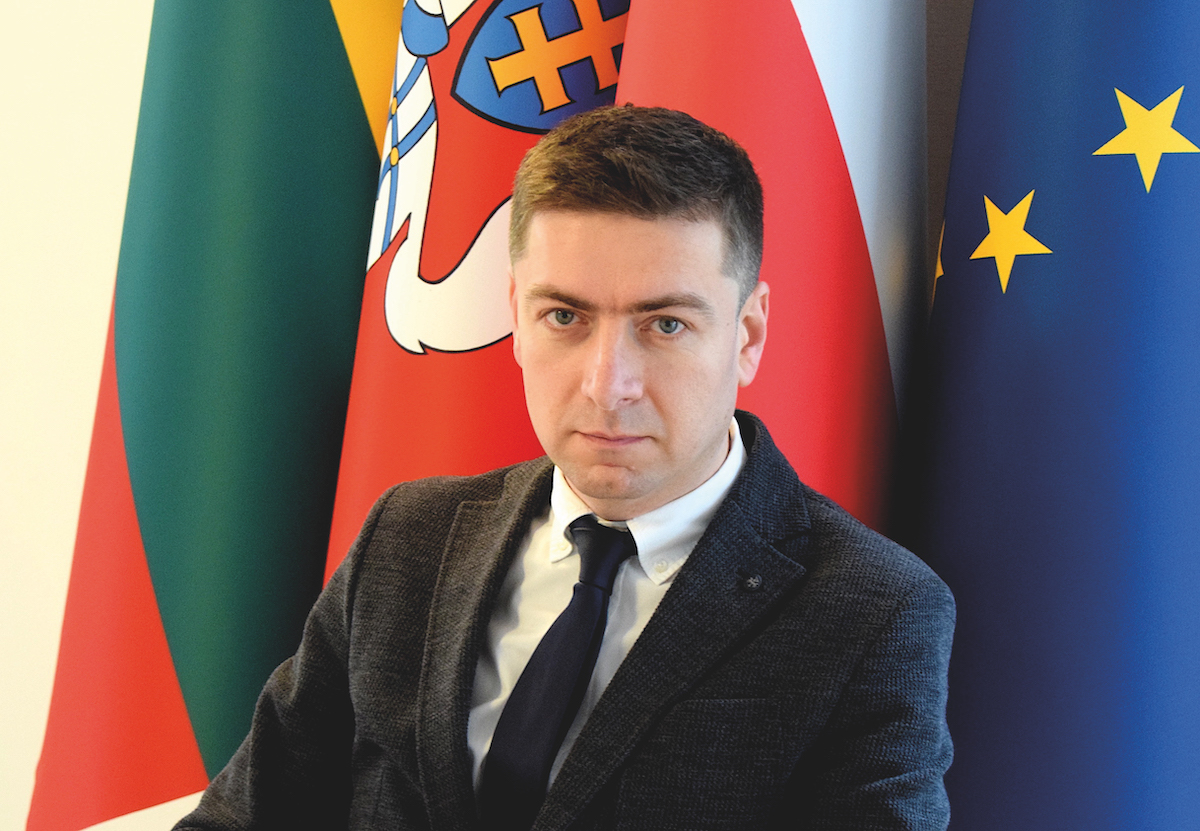“Lithuania is a very good place for business”

H.E. Laimonas Talat-Kelpša, Ambassador of Lithuania
Text: Martina Hošková and M.Zisso; Photo: Archive
When speaking about Czechia and Lithuania, H.E. Mr. Laimonas Talat-Kelpša, Ambassador of Lithuania, talks about a “relationship free of any trouble”. He supports his statement with the fact that “our trade hit an all-time record in 2022”, and that both countries have “a shared understanding of the past, a shared perception of contemporary challenges, and a shared vision of the future of Europe”.
Let’s get right to the point – what is the current status of Czechia–Lithuania relations?
How do you call a relationship free of any trouble? They’d call it ‘clear skies’ in satellite imagery. We have a perfect relationship that is based on a shared understanding of the past, a shared perception of contemporary challenges, and a shared vision of the future of Europe. The Czech troops have been deployed in Lithuania as part of NATO’s collective security mission, and our trade relations are soaring. Obviously, there still are areas to explore and expand, but the general outlook is extremely positive.
You are among the ambassadors who arrived in Prague two years ago, during the height of COVID-19. What were your first impressions?
I arrived in Prague in September 2020, just a few days before the second lockdown. I remember my wife and I going to the opening concert of the new season at the Rudolfinum, the fantastic performance and the staggering picture of a thousand people, all covered in facemasks… A few days later, the emergency was declared. That indeed was a weird moment. Imagine: we had just arrived and checked in at our hotel. And we discover a few days later that the hotel will stop even serving breakfast. All public life in the city came to a standstill. So, as a foreigner, you don’t even know where to get your food and other essentials from, not to mention the social contacts you are expected to build as a diplomat. This moment is vividly stuck in my memory as the emblem of my first date with Prague. At the same time, the lockdown gave us a rare opportunity to explore the city, emptied of its touristic crowds. To visit all the iconic streets and bridges when there is no one else but history and you.
I treat this starting period with gratitude and respect. Prague and I have passed through a difficult moment together, which makes us brothers-in-arms, as we say in our culture.
The Czech-Lithuanian relationship is free of any trouble. Can you say the same about our economic exchange?
Our trade hit an all-time record in 2022. The annual statistics will be available in March, but the numbers for January-November already indicate unprecedented growth. Thus, our trade volume in January-November crossed 1.3 billion Euros (with 1.1 billion Euros of trade in 2021). This is more than Lithuania’s trade with China during its best period.
We import electronics, plastics, Škoda cars, and pharmaceutical products from Czechia, while we export plastics, electronics, tobacco products, and optical lasers to Czechia. The fact that we trade in similar categories is a testament to the equal character of our partnership. Both Czechia and Lithuania have well-established industries, which increasingly join their hands and talent in mutually benefitting collaborations. Our membership in the EU Single Market makes the case even stronger. I expect that the unfolding transitions to digital and green economies will only consolidate our cooperation.
What stands behind the sensational growth of the Lithuanian economy lately?
‘Sensational’ is a strong word, but we must take two factors into account. One – Russia’s war in Ukraine, and two – China’s unprecedented economic pressure on Lithuania. No other European economy experienced the combination of both. And yet, despite these significant complications, the Lithuanian economy grew by 2.4%. The Central Bank had to revise its predictions several times during the year, and to everyone’s surprise, every time it was coming out with even more optimistic forecasts.
I believe we can single out three factors behind this spectacular performance. Firstly – the post-pandemic demand, when the companies and consumers started spending as never before. Secondly – the strong manufacturing base of the Lithuanian economy, which made us less vulnerable to the pandemic restrictions and post-pandemic disruptions than other European economies reliant on such industries as tourism. Lithuania attracted a total of 57 foreign direct investment projects in 2022, a significant share of it going to the construction of new plants and production facilities. Thirdly – heavy investment in the sectors of the New Economy, including hi-techs, fintechs, biotechs, and others. Today, biotechs generate almost 3% of the national GDP and laser production over 1%. As a leader in continental Europe by the number of licensed e-money and payment institutions, Lithuania is ranked in the TOP 10 of the Global Fintech Index. Add to this our complete independence in terms of energy supplies, and to our nearly complete insulation from the risks of authoritarian markets, and you realize Lithuania is a very good place for your business under these challenging circumstances.
How is the Russian war in Ukraine affecting your economy?
Initially, it has generated concerns about whether Lithuania is a safe place to stay. Our travel agencies had reported of certain groups cancelling their planned trips to Lithuania. But come on, Lithuania does not even have an immediate border with the warzone! Our companies had already borne the brunt of the Russian sanctions since the illegal annexation of Crimea, so, by and large, they have proven resilient to the most recent developments. Since 2014, we have diverted our energy supplies from Russia – now we import oil and gas through our own terminals in Klaipėda. Thus, the war is affecting us mainly through global fluctuations. We have to buy more expensive oil and gas, which reflects on the final energy bill.
We have to compete for industrial supplies with the companies that used to buy in Russia but no longer can. We have to divert public funds from economic investment to security and humanitarian spending. So, of course, there are implications. But they are minimal in comparison to what Ukraine has been suffering, and it is our obligation to help Ukraine win this war sooner.

H.E. Laimonas Talat-Kelpša, Ambassador of Lithuania
Is your country a popular destination for Czech visitors?
This is a very good question. The geographical distance between Czechia and Lithuania is the same as between Czechia and Croatia. But if 80+% of the Czech people have been to Croatia, how many do you think have visited Lithuania? The statistical number for the year 2021 is 3,200. Of course, this is not enough. Why people travel south and avoid travelling north remains a puzzle. The sun and the sea are only a small part of the answer. The sooner we get to solving this puzzle, the larger amount of Czech travellers will have the opportunity to come and see Lithuania and the other Baltic states.
The EU presidency of the Czech Republic has just ended. Were your expectations fulfilled?
First of all, I would like to compliment our Czech friends on their successful presidency. They had to steer the EU in very turbulent times, and had managed well. The EU has consolidated itself and remained united vis-à-vis the Russian aggression. New sanctions have been introduced. The energy shock taken under control. The support package for Ukraine, including military support, was secured. The EU has even overcome its previous stalemate regarding enlargement, with Bosnia, Moldova, and Ukraine receiving candidate status, and Croatia joining both Schengen and the Eurozone. I believe we all emerged more optimistic about the EU, and supportive of it, after the Czech presidency, including the Czech people themselves.
This interview is done on your National Day. Would you like to share a few words on this occasion?
On 16th February, we will celebrate the 105th anniversary of the Lithuanian Independence Restoration Day. It has its roots also here in Prague, because the first printed Lithuanian-language newspaper, which galvanized the national awakening in the 19th century, was produced and edited in Prague Vinohrady, on Balbínova Street. This Czech connection was hardly relevant to the newspaper’s contemporaries, as they were focused on different tasks. However, to our generation, it is a living reminder of how closely interconnected we, the Central European nations, are. I wish that we always remember and cherish our wider European roots, and build our future European house together. A house that definitely has a place for Ukraine.

